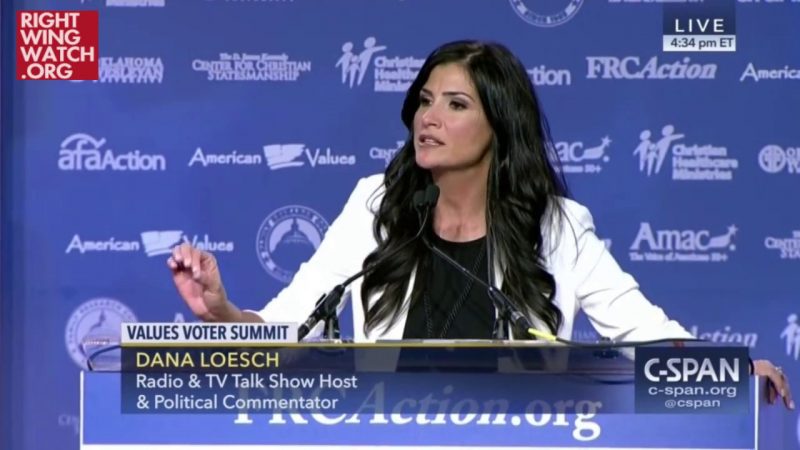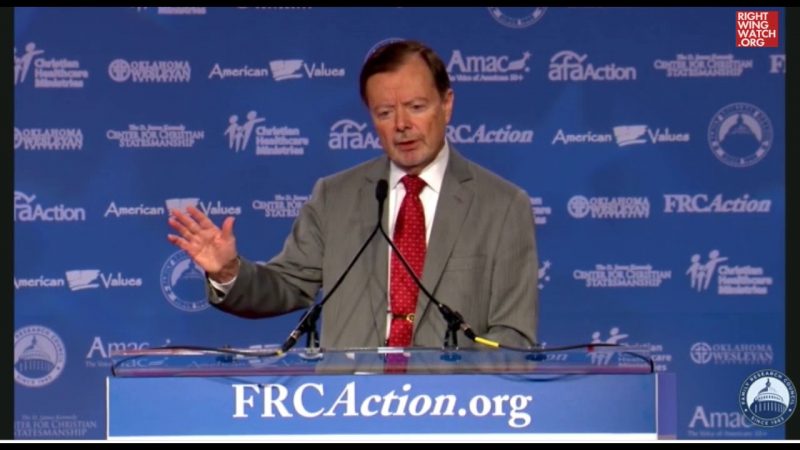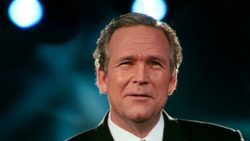Religious Right political operative Ralph Reed told Values Voter Summit attendees this morning not to pay attention to the polls or the media for the next 45 or 50 days, but to focus on turning out the evangelical voters who he said could made the difference in congressional races.
“If we get our vote out, we’re gonna have as many shocked journalists on the sets of the major networks on election night ‘18 as we had in ‘16. … They don’t get to decide who wins,” he said. “We do.”
Reed called this year’s midterms “without question one of the most consequential elections in modern American political history” and said Trump’s presidency is at stake:
This election is about one thing: It’s whether the Trump presidency is gonna end after two years, or whether it’s gonna continue. And if you want these policies and personnel to continue, then you better turn out, and you better get your friends and family to turn out, and you better drag people to the polls on election day. And if we don’t do that, and they take either chamber, his presidency will either be hobbled or over after two years.
And I say that not as hyperbole but because we did it to Obama. When we took the House and the Senate, he could do almost nothing. … He couldn’t do anything on climate change, couldn’t do anything more on Obamacare, couldn’t raise taxes–legislatively he was a lame duck.
Reed said that Trump had gotten nearly 30 million evangelical votes, a record for any presidential candidate, and he talked about how many potential evangelical voters there are in each of the key Senate races, which are now tied or within the margin of error.
“And by the way,” he said. “We have search history, online search history, on 40 percent of these voters. We have cell phones on 45 percent of these voters. So we’re going to be able to contact them.”
Reed was speaking at a breakfast sponsored by United in Purpose, an organization founded by conservative venture capitalists to fund conservative Christian voter identification and mobilization, which Reed portrayed as essential to maintaining and increasing conservative evangelicals’ political power even as they shrink as a percentage of the U.S. population:
You remember how we were told we were going away? We were receding as a political force? Not true–because the only thing that matters is not your share of the population–that is declining–it’s the share of the electorate. It doesn’t matter who’s eligible or who’s registered. It only matters who turns out. We can have more impact today than we could have had 10 or 20 years ago.
Appearing with Reed was evangelical pollster George Barna, who walked people through a presentation on the historical challenge to the party that controls the White House, which typically loses congressional seats in the midterms.
Barna said that challenges to mobilizing high turnout among the most active Religious Right voters–he uses the term SAGE Cons to identify Spiritually Active Governance Engaged conservatives, which he says make up about 10 percent of the population–include mixed feelings about Trump himself. They like his policies, he said, though not some of his values and behavior. Another challenge, he said, is that many conservatives don’t particularly like the Republican Party, which has endorsed establishment candidates over movement insurgents.
Barna encouraged Republicans to focus on a set of issues that he said could motivate base voters while giving Republicans a greater shot of pulling in independents: taxes, economic growth and stability, immigration, crime and violence, and national defense and terrorism.
He said that while religious freedom is not a big concern for most Americans, it is for “our people,” who need to understand that “the Democrats would love to take away a lot of our religious freedoms.”
Barna said most people don’t really care about either party and so are not motivated simply by the partisan battle for control of Congress But he said it could motivate potential voters “if we can help them understand that who has control of Congress actually dictates the course of the nation, that’s a big deal: helping them to understand what’s going on with court nominations, not just the Supreme Court but other federal courts as well, and that has a lasting impact.”
While Reed expressed confidence that evangelicals could make 2018 a banner year for Republicans, he noted that progressive voters are showing high levels of motivation this year, which has led to some surprisingly close races, like the Texas Senate race between incumbent Ted Cruz and challenger Beto O’Rourke.
“Let me tell you something,” he said. “If Ted Cruz loses to Beto O’Rourke, we got bigger problems than we can fix. I don’t think that’s going to happen.”








